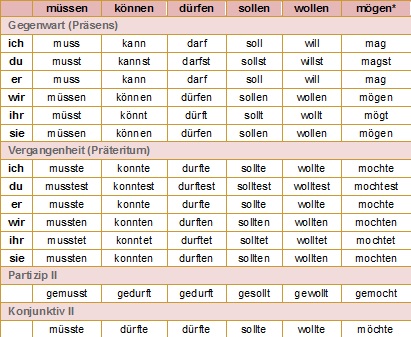
The explanation is similar in English: “liking something” doesn’t mean you “want” it.īut used with the modal verb “would” (corresponding to Konjunktiv II in German), i.e. How is it possible for one verb to have 2 conjugations with different meanings? Thus, there are two ways of conjugating the German modal verb mögen as you can see in the following table: Modal verb infinitive mögen However, the conjugation with -chte ( möchte) means “to want/would like”.

The modal verb in its infinitive form mögen generally means “to like” and this is the meaning you express if you conjugate it with a -g- in its root (mag).

Difference in meaning between mögen and möchten

Möchten is a verb from derived from the modal verb mögen, namely the Konjunktiv II, but used with present meaning. I’m aware that there are some websites where you can find the expression “the verb möchten” but this information is wrong. Many people wonder about the difference between the German verb forms mögen and möchten.įirst of all, you need to know that there is no German infinitive * möchten.


 0 kommentar(er)
0 kommentar(er)
